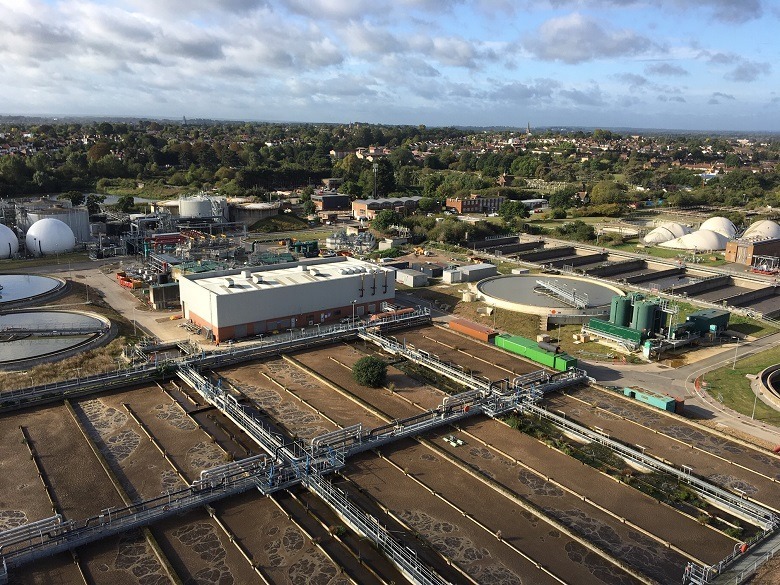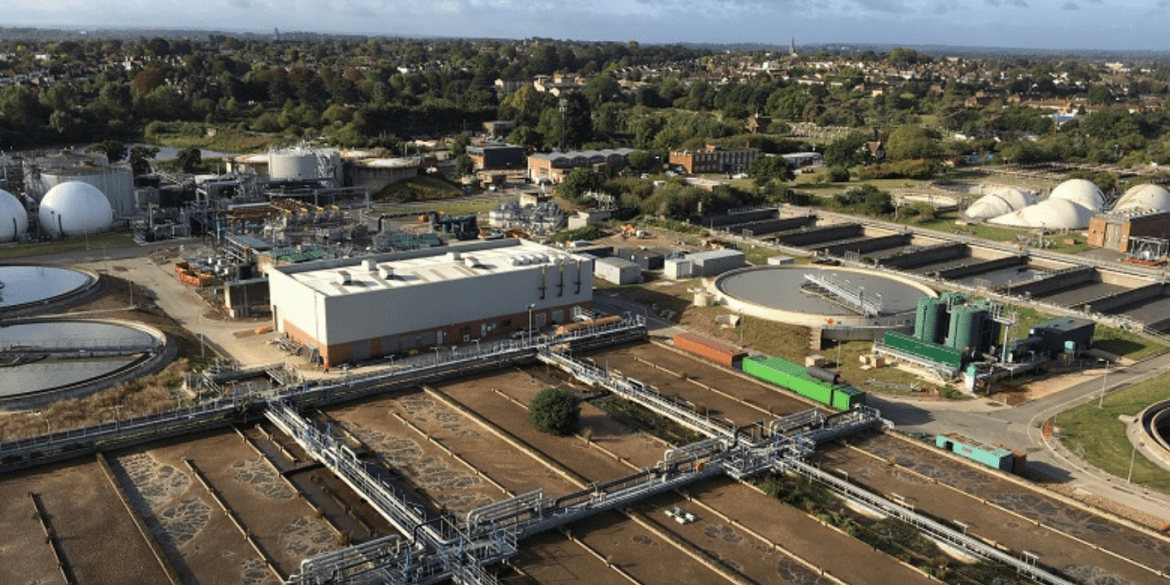Thousands of homes across Kingston could soon be heated using energy produced during the sewage treatment process.
The collaboration between Kingston Council and Thames Water would be the first low carbon heating scheme of its kind in England.
Council leader Caroline Kerr dubbed the scheme as “ground-breaking” in the Borough’s fight to become carbon neutral by 2038.
Kerr said: “It’s a first for England and shows we are serious about reducing carbon in the borough. This is a real opportunity to be bold and ambitious for future generations.”
Around 2,000 homes on the Cambridge Road Estate, once it is regenerated, could benefit from the clean heating project, making homes in Kingston “some of the greenest in the country”, according to Kerr.
Over the past two years, the Government and Greater London Authority have funded a study exploring the project’s design elements and how feasible it would be.
The scheme is awaiting the green light for capital funding from the government, with a decision to be made later this month.
How would the scheme work?
The heat that remains after the final stage in the sewage treatment process at the Thames Water Hogsmill sewage works would be captured and concentrated.
It would then be supplied to buildings on the Cambridge Road Estate via a “state of the art” energy centre to be built on-site.
A whopping seven-gigawatt hours of low carbon heat could be supplied to the estate every year, with the aim of eventually rolling out “poo power” to other buildings in Kingston’s town centre.
The scheme is expected to act as a pilot project, with other towns across the country potentially enjoying the benefits of human waste heat in the future and reducing millions of tonnes of carbon emissions.
Sarah Bentley, chief executive at Thames Water, said: “Renewable heat from our sewer network is a fantastic resource, so it’s important we develop this and more decarbonising schemes further to continue to spread the benefits.”

It is thought that the use of poo power over fossil fuels could save over 100,000 tonnes of carbon dioxide emissions over the next three decades – the equivalent of more than 150,000 return flights from London to New York.
The ‘waste not, want not’ approach has been well received on social media, with tweeters praising the “brilliant” and “innovative” scheme for the positive impact it would have on the environment.
Sue Riddleston OBE, chief executive of sustainability consultancy charity Bioregional, said: “Kingston Council should be congratulated for coming up with smart ways of using waste heat”, adding that innovative solutions like the poo power scheme are needed to tackle the climate emergency.
Environmental concerns
Sharron Sumner, councillor for the Kingston and Surbiton Green Party, said that while the party welcomes the scheme, it has “questions about the implementation”.
“Part of the scheme proposes digging pipelines underneath the Kingsmeadow, which is a protected habitat – it’s a slow worm habitat,” she said.
Slow worms are protected under the Wildlife and Countryside Act 1981.
Sumner added: “There’s no point coming up with an environmental scheme if you destroy the environment to make it happen.
“It would be great if we could come up with this scheme which is good for the environment in terms of energy production but also doesn’t damage the environment in the process of getting it started.”
A spokesperson for Kingston Council said: “The technical team advising the council are aware of the matters raised.
“Investigations will be undertaken in future stages of the proposed project and considered as part of any future planning application assessment.”
Sumner is also keen to see more solutions to reduce Kingston’s carbon emission, particularly revolving around traffic and air pollution in the Borough.
“This is good and this is a step in the right direction but…we’re not really going to hit our 2038 target unless you tackle air pollution,” she said.
The council officially declared a climate emergency in June 2019 and has identified key areas of focus in tackling the crisis, including sustainable transport and travel, air quality and energy efficiency.
At a council meeting earlier this month, council leader Kerr said: “We take our environmental responsibilities very seriously.”






